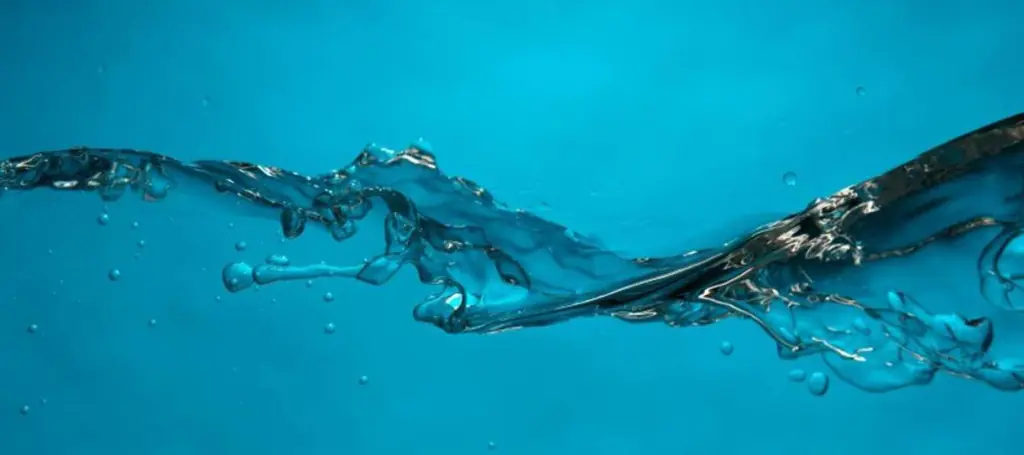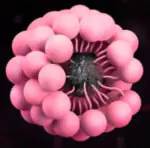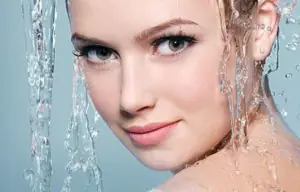Why use micellar water as a hair care product?!

It turns out that micellar water is an excellent replacement for regular shampoo!
Today micellar water is very popular and is used to remove makeup and cleanse the skin of the face and neck.
Only a few manufacturers have made shampoos and hair conditioners with this miracle water. This shampoo can be used twice a week; it cleanses your hair very thoroughly, and just two times will be enough for clean, fresh hair.
Regular shampoos contain sulfates, they have an aggressive effect on the hair structure and can damage the cuticle, thereby making hair dry and brittle.
And products based on micellar water carefully and gently rid the hair and head of dust, grease and residues of other products. Micelles act on the surface, do not penetrate deep into the hair structure, do not destroy it, and have a neutral pH.
With such positive characteristics, micellar water will definitely soon appear in hair care products in the lines of many major brands.
Micelles are molecules of microscopic size. They, like a magnet, attract dirt to themselves and are then easily washed off with water.
At the request of Marie Claire, Kerastase ambassador, stylist at the Sakurami salon, Danila Mileev, spoke about the important qualities of the new representative of the “micellar family” and suggested who might especially benefit from it.
For those who wash their hair frequently
Micellar shampoo was conceived as a means of daily cleansing of hair and scalp, in this regard, the relationship with micellar water for makeup removal comes to the fore. The analogy, of course, cannot be complete, because if washing after cleansing the face with micellar water is optional, then no one has canceled washing off the micellar shampoo.
But what are micelles in principle? These are small formations that - conditionally - look like tadpoles with tails. On the outside they have tails that interact with fat molecules, and on the inside they have tails that interact with water. When the micelle comes into contact with fat (this is cosmetic oil, technical oil from the street, and its own sebum), it attracts it, captures it and lets it inside. It should be noted here that micelles cleanse hair more delicately than surfactants, and micellar shampoos do not deprive hair of natural moisturizing oils and natural hydrolipid film. After washing, there is a high probability of hearing the squeak of crystal-clear hair, but this can be easily corrected using conditioner paired with shampoo.
Micellar water for the face has been a must-have product for modern women for several years now. It removes makeup, doesn’t irritate the eyes, and cleanses pores - there are many advantages, although there are also a number of disadvantages that not all lovers of cosmetic novelties know about.
You can learn more about micellar water here.

It's no secret that the main feature of this product is micelles - tiny molecules that absorb dirt, grease and other debris, and then are removed with your head held high using a cotton pad.
For several years, personal care product manufacturers have competed to mix cocktails of ingredients to create micellar products. This is how micellar tonics, thermal micellar lotions and other products for various skin types were born. And now it’s time for the hair. Experts say that in 2018 micelles will be everywhere: in shampoos, conditioners, and masks.
How does micellar water for hair work?

The principle of action is the same for both hair and face. The sponge particles attract sebaceous secretions, gently cleanse the surface of the skin or hair, and then are completely washed off. Only for strands, water acts as a sponge or cotton pad.
By the way, micelles belong to the category of surfactants (surfactants), which for some reason many women are so afraid of. Those who are especially frightened even switch to co-washing, that is, they completely abandon shampoo. But now co-wash lovers can breathe easy, returning to their usual skincare products, but with an updated composition containing micelles.
Pros of micellar shampoo:
- Doesn't dry out.
- Gently but thoroughly cleanses.
- Does not require re-application, even if you have oily hair type.
- It washes away everything unnecessary not only from the curls, but also from the scalp.
- After using micellar shampoo, almost all hair masks are absorbed more effectively (there is simply nothing stopping them), and lamination and shining procedures have an even greater “wow” result.
- Helps normalize the functioning of the sebaceous glands. Although in this case, the effect is explained, rather, by better cleaning, so the hair remains “fresh” longer.
Cons of micellar shampoo:
- Not recommended for everyday use. Everything is simple here: micelles “take away” almost all the fat from the head. But for a person, sebaceous secretions are also a protective barrier, therefore, constantly washing it off can easily provoke peeling and irritation on the skin.
- You can’t do without a balm or an express mask. For the above reason, hair washed with micellar, deprived of any natural lubricant, becomes stiff and difficult to comb, so it needs conditioner.
- Most shampoos with micelles do not foam well, and accordingly, the product consumption will be greater compared to the usual analogue.
- Relatively high price. Although many budget brands have already released their hair micellar products at an affordable price.
Micellar balm. What is it for?
Logically, micelles remove all fat-like substances from both hair and skin, so what is the point of such a balm? It turns out that scientists have found that the chemical properties of the micelles are such that in contact with glycerin, they help retain moisture on the hair, providing a moisturizing effect. And where there is hydration, there is natural beauty.



